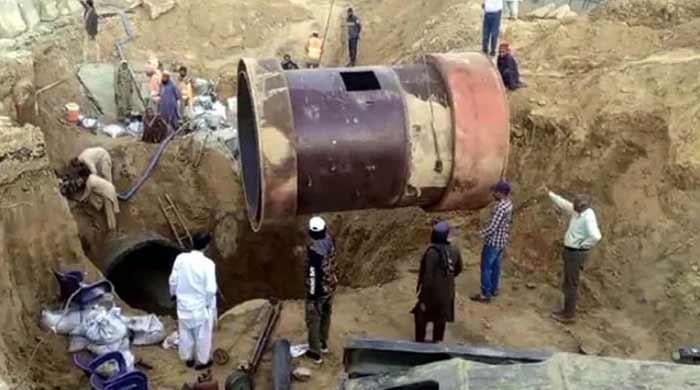
Water Supply Restored to Affected Areas in Karachi: A Comprehensive Update
Karachi, Pakistan's bustling metropolis, has been grappling with water supply issues that have impacted various neighborhoods. Fortunately, recent updates from the Karachi Water and Sewerage Corporation (KWSC) indicate that efforts to restore water supply to the affected areas have been successful. This article explores the situation in detail, providing insights into the challenges faced by KWSC, the response measures they have implemented, and what residents can expect moving forward.
Understanding the Water Supply Crisis in Karachi
Karachi is one of the largest cities in the world, with a vast population that relies heavily on a consistent water supply. However, the city has faced persistent challenges, including aging infrastructure, increased demand, and climate change effects, which have led to water shortages in various localities. The recent disruptions in water supply have exacerbated the difficulties faced by residents, making the timely restoration of water services crucial.
KWSC's Response to the Water Supply Disruptions
On Thursday, the KWSC announced that it had successfully restored water supply to the affected areas. This announcement came after extensive efforts to repair damaged water lines and enhance the overall water distribution system. KWSC officials, including representatives from the corporation, visited areas such as the University of Karachi to inspect the damage and oversee repair operations.
The restoration process involved:
1. Assessment of Damaged Infrastructure: KWSC teams conducted thorough inspections of the affected water supply lines to identify the extent of the damage and the necessary repairs.
2. Implementation of Repair Measures: Following the assessment, KWSC mobilized resources to carry out the repairs quickly. This included replacing damaged pipes, ensuring proper sealing, and addressing any leaks.
3. Communication with Residents: KWSC kept the public informed about the situation through various communication channels, including social media updates and press releases. This transparency helped residents stay updated on when they could expect water supply restoration.
Importance of Water Supply Restoration
Restoring water supply is not just about providing a basic necessity; it has far-reaching implications for public health, economic activity, and overall quality of life. In the absence of reliable water access, residents face challenges in maintaining hygiene, cooking, and carrying out daily activities. Moreover, businesses that rely on water for operations can also suffer significant setbacks.
Future Measures for Sustainable Water Supply
While the restoration of water supply is a significant achievement, KWSC recognizes that long-term solutions are essential to prevent future disruptions. Some measures that may be considered include:
- Infrastructure Upgrades: Investing in modernizing the existing water supply infrastructure can enhance efficiency and resilience against disruptions.
- Water Conservation Awareness: KWSC could launch awareness campaigns to educate residents on water conservation practices, helping to reduce overall demand.
- Alternative Water Sources: Exploring alternative water sources, such as rainwater harvesting and desalination, could provide additional support to the city’s water supply.
- Regular Maintenance Programs: Establishing a routine maintenance schedule for water supply lines and infrastructure can help identify issues before they escalate into larger problems.
Conclusion
The recent restoration of water supply in affected areas of Karachi is a testament to the hard work and dedication of the KWSC and its teams. As the city continues to face water supply challenges, it is crucial for both the government and the community to work together towards sustainable solutions. By prioritizing infrastructure upgrades, conservation, and alternative water sources, Karachi can strive towards a more reliable and efficient water supply system for its residents.
FAQ Section
Q1: What caused the recent water supply disruptions in Karachi?
A1: The disruptions were primarily due to damaged water supply lines, exacerbated by aging infrastructure and increased demand.
Q2: How did KWSC restore water supply to affected areas?
A2: KWSC teams assessed the damage, implemented repairs, and communicated updates to the public through various channels.
Q3: What are the long-term solutions being considered to prevent future water supply issues?
A3: Long-term solutions may include infrastructure upgrades, public awareness campaigns on water conservation, exploring alternative water sources, and establishing regular maintenance programs.
Q4: How can residents conserve water?
A4: Residents can conserve water by fixing leaks, using water-efficient fixtures, collecting rainwater, and practicing mindful water usage in daily activities.
Q5: How can I stay updated on water supply issues in my area?
A5: You can stay updated by following KWSC's official social media channels or visiting their website for the latest news and announcements regarding water supply services.
Tags
National
